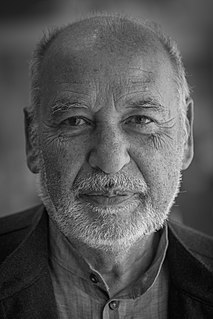A Quote by Paul Celan
There's nothing in the world for which a poet will give up writing, not even he is a Jew and the language of his poems is German.
Related Quotes
These are crystalline - oftentimes incandescent - translations of Juarroz's powerful metaphysical poems where eternity and silence jut up against a world where “writing infects the landscape” and there are “more letters than leaves” - The kind of match one hopes for where both the translator and the poet are in luck; new poems which don't leak and yet old poems in which the original passion shines.
Once a poet always a poet, and even though I haven't written poems for a long time, I can nonetheless say that everything I've ever learned about writing lyrical fiction has been informed by three decades of writing in lines and stanzas. For me the real drama of fiction is almost always the drama of the language.
One of the surest tests of the superiority or inferiority of a poet is the way in which a poet borrows. Immature poets imitate mature poets steal bad poets deface what they take and good poets make it into something better or at least something different. The good poet welds his theft into a whole of feeling which is unique utterly different than that from which it is torn the bad poet throws it into something which has no cohesion. A good poet will usually borrow from authors remote in time or alien in language or diverse in interest.
I became a poet in Pittsburgh. When I lived in the South, I was a basketball player and primarily a jock. An English teacher essentially suggested that I send the poems that I'd been writing - really just for him - to a few programs, so that when I wound up in Pittsburgh, it's where I figured out that I could actually be a poet.





































